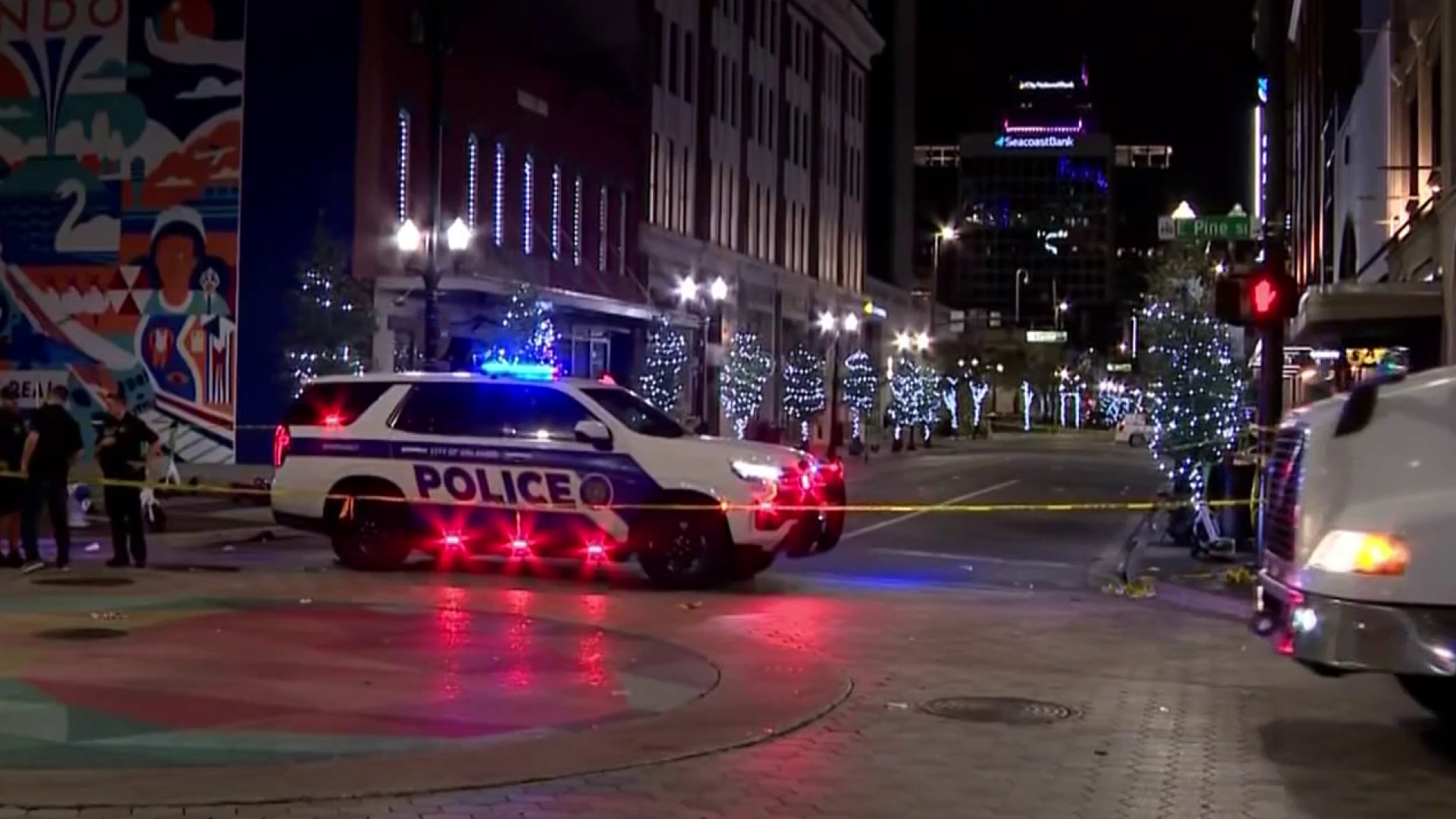What to Know
- Gov. Andrew Cuomo is upping the ante on the state's quarantine advisory, now requiring travelers from hotspot states to submit a form with their contact information and where they'll spend their 14-day isolation
- Failure to submit that form may result in a $2,000 fine; violators may also be summoned for a hearing and subject to mandatory quarantine. The rules now apply to travelers from 22 states, with four more added Tuesday
- Cuomo announced the new state health emergency order Monday, saying noncompliance from out-of-state travelers was contributing to new COVID clusters in New York; that compounds the compliance problem locally
UPDATE: More Than 1/2 of America Now on Tri-State Quarantine List; 10 More States Added Tuesday
Four more states were added to the tri-state's quarantine-restricted list Tuesday -- New Mexico, Minnesota, Wisconsin and Ohio. Delaware came off, no longer meeting the criteria to be considered a viral hotspot under New York standards.
That brings the total number on the list to 22. In addition to the newcomers, the restricted states include: Alabama, Arkansas, Arizona, California, Florida, Georgia, Iowa, Idaho, Kansas, Louisiana, Mississippi, North Carolina, Nevada, Oklahoma, South Carolina, Tennessee, Texas and Utah.
Citing noncompliance with the existing quarantine advisory, Gov. Andrew Cuomo upped the ante with a new emergency health order in New York starting Tuesday. Travelers from those 22 hotspots, with COVID-19 positivity rates higher than 10 percent, who land at New York airports now must fill out a form that state officials will use to ensure they isolate for 14 days.
Failure to fill out the form, which will be handed out during flights and asks for contact information, before leaving the airport could result in a $2,000 fine and mandatory quarantine. Airlines will provide the forms to passengers prior to or upon disembarking flights to New York. Enforcement teams will be stationed at airports statewide to meet arriving aircraft at gates and request proof of the form's completion, Cuomo said.
U.S. & World
Stories that affect your life across the U.S. and around the world.
Out-of-state travelers coming to New York by train, bus or car are required to fill the form out online, though it wasn't immediately clear how compliance would be enforced.
The health form is Cuomo's latest attempt to protect New York from the COVID surge swallowing more than half the nation's states -- and it ups the ante from the quarantine order New York, New Jersey and Connecticut jointly issued last month. Under that order, travelers from states that exceed a certain threshold of seven-day rolling positive daily test percentages or number of positive cases per 100,000 residents are required to isolate for 14 days.
Cuomo admitted from the outset that enforcement would be difficult, despite the threat of a $10,000 fine. As of Tuesday, no fines from the previous order had been handed out in NYC, officials told NBC News. The governor said he issued the new order Monday because noncompliance from out-of-state travelers was compounding the problem of noncompliance locally.
Travelers from Georgia, for example, who didn't quarantine for 14 days are blamed for a new COVID cluster in Rensselaer County, Cuomo said. In Suffolk County, more than 20 percent of people who attended a Fourth of July party contracted COVID-19, demonstrating how quickly it spreads once it's here, he added.
Suffolk County recorded 102 new daily COVID cases Monday, Cuomo said Tuesday. The last time it topped 100 new cases in a day was late May. The county executive there said it was due to July 4th parties where, despite being under the threshold for gathering sizes the state allows, attendees apparently ignored face mask and social distancing measures.
Statewide, New York's daily spot positivity test rate was 1.5 percent Tuesday, the highest it has been in about six weeks. Over a seven-day rolling period, the positive test rate average is just 1 percent, a far cry from the 48 percent weekly rolling average the state saw at the crisis' peak in early April. Cuomo never wants to climb that mountain again.
Daily Percentage of Positive Tests by New York Region
With all of New York state in some phase of reopening, Gov. Andrew Cuomo is shifting his focus to monitoring test results on a daily basis across each region to identify potential hotspots before they emerge. Here's the latest tracking data by region. For the latest county-level results statewide, click here
Source: ny.gov
"I cannot be more clear: Look at what's happening in the rest of the country — if we are not smart, if we don't wear masks and socially distance, cases will spike," Cuomo said Tuesday. "No one wants to go back to the hell we experienced three months ago, so please stay vigilant."
For weeks, an at-times seething Cuomo has blasted President Donald Trump for pushing uninformed reopenings in a blinding effort to reboot the starved national economy. Florida, where beaches and bars were flooded by unmasked young people and others as soon as they reopened, is just now seeing its darkest days of the pandemic. It topped New York's single-day COVID record from April over the weekend. Cuomo, whose state has confirmed more than 400,000 virus cases since early March, would say increased death comes next. It's a lagging indicator.
He doesn't want other states' COVID cases to fly into New York as the ones from Europe did earlier this year, stoking a virus frenzy that for a period of time seemed like it would spiral beyond the state's ability to contain.
"We can't be in a situation where we have people coming from other states in the country bringing in the virus again," Cuomo said.
Connecticut Gov. Ned Lamont said he would implement a similar process in his state to supplement the tri-state quarantine advisory. Asked Tuesday whether he would do the same, New Jersey Gov. Phil Murphy told 104.3-FM radio he wasn't inclined to fine people for violating the advisory. Earlier, he told ABC his state would "do it our own way," but emphasized, "We're deadly serious about this."
The three tri-states have reported nearly 45,000 COVID deaths, about a third of the total fatalities in the U.S., by Johns Hopkins data, though the governors acknowledge the actual toll is likely much higher. They don't want to start over.
Asked on "Good Morning America" about his level of concern over the national COVID surge Tuesday, Murphy said, "We've lived through hell ... we don't want to have to go through that again."
His state, New Jersey, is now one of just three states on track to contain COVID, alongside Vermont and New Hampshire. New York and Connecticut, meanwhile, are controlling disease growth, according to CovidActNow, a group cited by both Cuomo and Murphy that uses real-time metrics across four key indicators to assess risk. Both states had previously been on track to contain it.
The numbers in New York and Connecticut have been good as of late, but the governors know how quickly infections can spiral. Cuomo recalled an 11-day stretch of abject "hell" Monday, referring to a devastating period back in April where New York was losing nearly 800 people to the virus a day -- every day.
New York City, the former epicenter of the national crisis, now holds a seven-day rolling daily positive test percentage of just 1 percent. On Friday, it reported no new COVID deaths for the first time. Still, it can't rest on its laurels.
Mayor Bill de Blasio said Monday he was concerned about rising infection rates in the 20 to 29 age demographic, even as other age groups see flat or decreasing virus rates. He said New Yorkers should wear masks indoors at all times, even in large spaces or at work, regardless of whether social distancing can be met.
Cuomo also pointed out the rising infection rates among young people in New York City. He tweeted about it Tuesday, once again telling everyone to mask up.
Officials in the city introduced a new COVID test in order to assist communities that were particularly hard hit. These free tests give results in a matter of minutes, which other tests have struggled with and they hope will prompt more people to come forward and gets tested.
City Health Commissioner Oxiris Barbot said the tests are "something we are rolling out slowly so we can replicate the results," while acknowledging that these 15-minute tests are less accurate. She said the chances of someone who is actually positive getting a negative result in the lab is low, and that the tests are valuable because other tests can take longer than a week to show any results.



